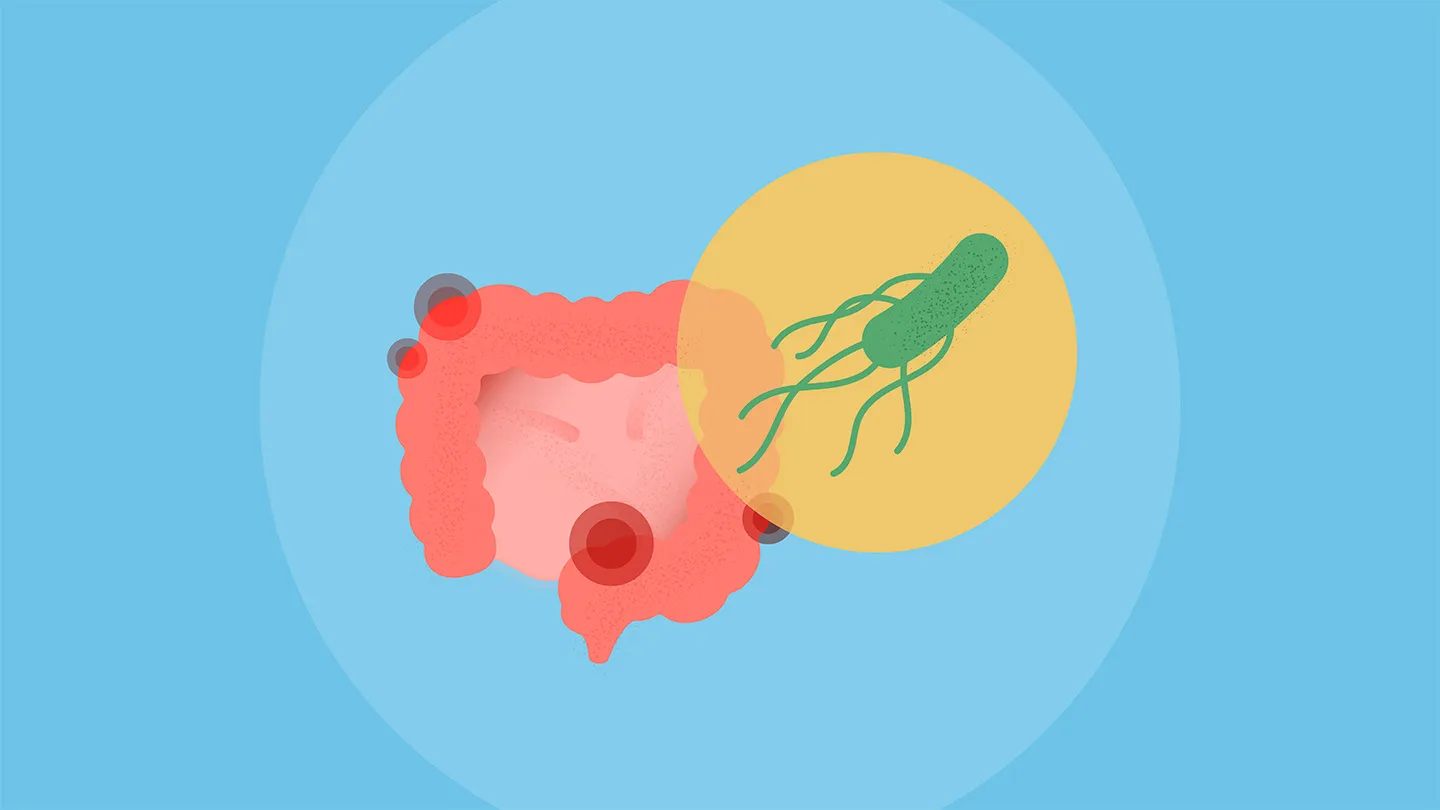New research suggests a possible risk factor: the presence of certain strains of Escherichia coli (E. coli) bacteria in the gut during childhood.
The findings suggest that this specific exposure probably happens in the first 10 years of life, which means that children with this mutation-generating infection in their colon face a higher risk of developing colorectal cancer as a young adult.
Based on these results, Dr. Alexandrov and his team are looking into creating early detection tests that analyze stool samples for colibactin-related mutations. Identifying young people at higher risk would open up new avenues for cancer prevention, monitoring, and treatment.
The research team is also exploring whether the use of probiotics could safely eliminate harmful bacterial strains.
Looking to the Gut Microbiome as Cases Climb in Young Adults
“This phenomenon among young people has sounded an alarm because it’s not going away,” says John Marshall, MD, chief medical consultant of the Colorectal Cancer Alliance and director of the Ruesch Center for the Cure of Gastrointestinal Cancers at Georgetown University in Washington, DC.
In the search to find out what’s driving these high cancer rates, researchers like Drs. Alexandrov and Marshall have been exploring how the gut microbiome may influence cancer development.
Toxin-Related Mutations Are 3 Times More Common in Early-Onset Tumors
The researchers analyzed colorectal cancer tumor DNA from 981 patients with both early- and late-onset disease across 11 countries with varying colorectal cancer risk levels. Results revealed that colibactin-related DNA mutations were 3.3 times more common in early-onset cases (specifically in adults under 40) than in those diagnosed after age 70.
“These mutation patterns are a kind of historical record in the genome, and they point to early-life exposure to colibactin as a driving force behind early-onset disease,” says Alexandrov.
Cathy Eng, MD, director of the Young Adult Cancers Program at Vanderbilt-Ingram Cancer Center (VICC) in Nashville, Tennessee, calls the results “intriguing” as the findings indicate a way to identify possible cancer development long before symptoms appear.
“It has been reported that it takes an adenoma [benign polyp] about 5 to 10 years to become an adenocarcinoma [cancer],” says Dr. Eng, who was not involved in the study. “Given that we are seeing colorectal cancer patients in their twenties and thirties, transition to cancer may begin when they are younger.”
What’s Causing These Microbiome Changes?
So far, scientists are unsure what might trigger E. coli infections linked to colorectal cancer.
Mariana Byndloss, PhD, an assistant professor of pathology, microbiology, and immunology at Vanderbilt University Medical Center, who has studied the effects of harmful E. coli species, speculates that antibiotics, such as those for ear infections and strep throat, could play a role.
“Bacteria can be resistant to antibiotics, and antibiotics can kill good microbes that help prevent colonization by E. coli,” says Dr. Byndloss, who was not involved in the study.
She notes that high-fat diets, low-fiber diets, and diets rich in processed foods may also factor in because they don’t adequately “feed” the good microbes that are beneficial for gut health.
Other factors that may increase risk may be not breastfeeding (which is thought to lower protection against infection) and cesarean sections (which reduce exposure to potentially beneficial vaginal microorganisms), according to Marshall, who was not involved in the study.
“It could also be that children are not getting enough exposure to things in our environment — they don’t eat as much dirt and wash their hands too often,” he says. “So they may not have a good variety and richness in their microbiome.”
The bottom line is we just don’t know yet why children may get these damaging infections and how they may be contributing to cancer risk, says Marshall.
While colibactin may contribute to the overall development of colorectal cancer, Eng sees the cause of the disease as multifactorial, and believes that more research is needed to validate these current results.
“In the interim, it is critical that young individuals and healthcare providers still learn of the signs and symptoms of early-onset colorectal cancer so they are aware to undergo a screening test — ideally a colonoscopy to remove any potential polyps early on,” she says.
Read the full article here




